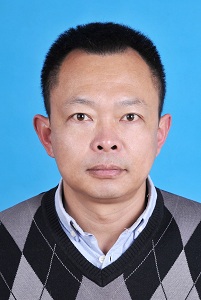| Professor Riki MatsumotoKyoto University, Japan Since 2018, Riki Matsumoto has been a professor at the Department of Neurology, Graduate School of Medicine, Kobe University. As the last bastion in Hyogo Prefecture, we provide comprehensive medical services ranging from common conditions like stroke, dementia, and epilepsy to stubborn neurological disorders. Serving as the director of both the Epilepsy Center and the Dementia Center, we have built an interdisciplinary healthcare system. In terms of research, besides joint studies with Japan and France in specialized systems brain physiology, I also have opportunities for interdisciplinary research both within and outside the university, as well as collaborative research and development of ultra-compact EEG devices with industry, academia, and government. Focusing on immune system and synaptic transformation (neuronal hyperexcitability) in the early stages of dementia, we are conducting pre-disease pathological marker and therapeutic intervention studies by integrating molecular genetics, immunology, pathology, physiology, and mathematics from cell culture and animal models to pre-disease cohorts. |
| Associate Professor Dan ZhangTsinghua University, China Dan Zhang is a tenured associate professor at the Department of Psychological and Cognitive Sciences, Tsinghua University. He received his Bachelor degree in Automation in 2005 and his Ph.D. degree in Biomedical Engineering in 2011, both from Tsinghua University, Beijing, China. His research interests include brain-computer interfaces, affective computing, learning science, etc. He has published over 50 papers in journals such as IEEE Trans. Affective Computing, NeuroImage, Cerebral Cortex, etc., with over 3500 total citations. He was the associate editor of the IEEE Trans. Affective Computing, and is editorial board members of the Journal of Neuroscience Methods, Cognitive Neurodynamics, and Frontiers in Human Neuroscience, etc. Abstract: Although electroencephalogram (EEG) signals have been widely investigated for emotion recognition in recent years, the inter-subject variability of emotion-related EEG patterns remains a significant challenge for the practical deployment of EEG-based affective computing systems. Drawing inspiration from recent neuroscience research on inter-subject correlation, we propose a novel contrastive-learning-based framework to address cross-subject emotion recognition. The proposed approach leverages contrastive learning to reduce inter-subject variability by maximizing the similarity of EEG signal representations across subjects exposed to identical emotional stimuli while minimizing similarity for differing stimuli. The framework employs a convolutional neural network to learn inter-subject aligned spatiotemporal representations from EEG time series during contrastive learning. These aligned representations are then used to extract discriminative features for emotion classification. Experimental results demonstrate that the proposed method achieves state-of-the-art cross-subject emotion recognition performance across multiple public EEG emotion datasets. Moreover, the learned spatiotemporal representations provide interpretable insights into the possible neural mechanisms underlying human emotion processing. |
| Professor Yang LiBeihang University, China Professor Li Yang, Doctoral Supervisor, serves as the Associate Dean of the School of Automation Science and Electrical Engineering and is a recipient of China’s national leading talent award. He earned his Ph.D. in Engineering from the University of Sheffield, UK (2008–2011) and conducted postdoctoral research at the University of North Carolina at Chapel Hill, USA (2012–2013). Since February 2013, he has been appointed as an Associate Professor and later Professor under the "Zhuoyue Bai Ren" (Outstanding 100 Talents) Program at Beihang University. His pioneering research with international impact spans vision-language-action foundation models and embodied intelligence, brain-computer interfaces and brain-inspired computing, intelligent medicine and neuromodulation, as well as bio-signal acquisition/sensing/processing chips. His prolific contributions include over 100 academic publications, with more than 60 first/corresponding-author papers in top-tier SCI journals such as IEEE Transactions on Medical Imaging, Medical Image Analysis, and IEEE Transactions on Neural Networks and Learning Systems. Multiple papers have been recognized as ESI Highly Cited Papers, accumulating over 4,000 SCI citations. |
| Professor Hongmin CaiSouth China University of Technology, China Hongming Cai, Vice Dean of the School of Future Technology at South China University of Technology, Professor at the School of Computer Science, Doctoral Supervisor, and Xinghua Distinguished Scholar, serves as the Vice Chair of the Bioinformatics and Artificial Life Professional Committee of the Chinese Association for Artificial Intelligence, an IET Fellow, and an IEEE Senior Member. He has long been dedicated to research in biomedical artificial intelligence data analysis, with his work published in top-tier journals such as IEEE Transactions on Pattern Analysis and Machine Intelligence (TPAMI) and Nature Communications. He has led over 10 projects, including the Ministry of Science and Technology's Key R&D Program, the National Natural Science Foundation of China Outstanding Youth Fund, and the Joint Fund, establishing a comprehensive precision medicine technology chain from molecular typing and pathological early screening to imaging diagnosis, securing 20 authorized national invention patents. He has independently developed a series of AI diagnostic platforms, including the Nasopharyngeal Carcinoma Big Data Diagnosis and Analysis System, with related achievements earning honors such as the First Prize in Guangdong Provincial Science and Technology Progress Award. Title: Artificial Intelligence Promotes theDevelopment and Application of Digital Twin Cells Abstract: Complex diseases originate from gene expression abnormalities that disrupt cellular regulation and lead to tissue pathology. Understanding life from molecular to cellular and tissue levels is essential for advancing life science and addressing global health challenges. The integration of AI and life sciences has accelerated digital life system research, exemplified by the 2024 Nobel Prizes in Physics (neural networks) and Chemistry (AI-driven protein design). Digital cells, powered by AI, model cellular behavior across molecular and environmental contexts, enabling quantitative, integrative, and predictive analysis. Our team focuses on the core cascade of disease progression—“gene dysregulation → cellular imbalance → tissue change”—and has developed multi-scale theories and algorithms linking genotypes to phenotypes. This digital, multi-modal modeling deepens our understanding of biological complexity and holds transformative potential for precision medicine. |
| Professor Min Li Central South University, China Li Min, aSecond-degree Professor and recipient of the National Science Fund for Distinguished Young Scholars at Central South University, serves as the Dean of the School of Computer Science and Doctoral Supervisor. Specializing in bioinformatics and data mining, she has published over 100 academic papers in international journals and conferences including Nature Communications, Genome Research, Genome Biology, Nucleic Acids Research, and Bioinformatics, accumulating over 10,000 Google Scholar citations. She holds more than 30 authorized national invention patents. Having led over 10 national and provincial research projects, she directed key initiatives such as the National Key R&D Program, National Natural Science Foundation Key Project, Distinguished Young Scholars Program, and Excellent Young Scientists Program. She currently holds multiple academic appointments, including Director of the Hunan Engineering Research Center for Biomedical Intelligent Computing, Deputy Director of the Hunan Key Laboratory of Bioinformatics, Committee Member of the CCF Bioinformatics Specialized Committee, and Standing Committee Member of the CAAI Bioinformatics and Artificial Life Committee. |
| Professor Xiaowei LiLanzhou University, China Li Xiaowei, doctoral supervisor, professor at School of Information Science and Engineering, Lanzhou University. E-mail: lixwei@lzu.edu.cn His research fields include biomedical data processing, affective computing, machine learning, computer application technology, etc. Current research mainly focuses on the analysis and processing of EEG signals, MRI data, and eye movement signals with the aim of depression recognition and affective computing. He has participated in several research projects, including STI 2030 project, key science project of the Gansu Provincial Department of Science and Technology, and the National Natural Science Foundation of China's key projects, the Ministry of Science and Technology's "973" plan project , and international cooperation projects. As the first author or corresponding author he published more than 70 papers, including ACM COMPUT SURV, CHAOS SOLITON FRACT, TAFFC, KBS, JAD,JNE, PSYCHIAT RES,etc. Title: EEG-BASED AFFECTIVE COMPUTING Abstract: Researches have shown that depression, as an emotional disorder, is characterized by disturbances in the high-level neural functions of the brain. The emotional and cognitive impairments of depression patients are closely related to changes in the function and structure of certain brain regions; In addition, in the field of emotion computing based on EEG signals, individual differences in EEG information are the main reason for poor robustness and low cross dataset generalization performance of emotion models. In the field of emotion recognition and mental illness recognition based on EEG, stable and effective physiological information indicators are often difficult to obtain due to the complexity of individual information. This report first introduces the application research of functional connectivity network analysis based on EEG in the recognition of depression, an emotional disorder; Secondly, based on the emotion recognition dataset, the application of machine learning in depression recognition and the recognition and elimination of individual differences in EEG information were introduced. |
| Researcher Zhaofei YuInstitute for Artificial Intelligence, Peking University, China Yu Zhaofei, currently Researcher and Doctoral Supervisor at Peking University’s Institute for Artificial Intelligence, is a recipient of the National Science Fund for Excellent Young Scholars. He earned his Bachelor of Engineering degree from Chongqing University (2012) and Ph.D. from Tsinghua University (2017), followed by postdoctoral research at Peking University (2017–2020). His primary research focuses on brain-inspired computing and neuromorphic computing. He has published over 60 papers in top-tier journals including Nature Biomedical Engineering and Science Advances, as well as leading IEEE Transactions journals and conferences such as NeurIPS, ICLR, ICML, CVPR, ICCV, ECCV, AAAI, and IJCAI. He leads multiple projects, including sub-tasks of the Ministry of Science and Technology’s "Brain Science and Brain-Like Research" Major Program, National Natural Science Foundation General Projects, Beijing Rising Star Program for Scientists and Technologists, and the Postdoctoral Innovative Talent Support Program. |







